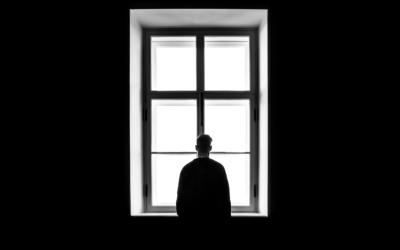As our parents age, we want to treasure them for as long as we can, so we look for ways to help them stay healthy and active. But many older people suffer from depression, a condition that is not always easy to battle.
According to the National Alliance on Mental Illness, depression affects more than 6.5 million of the 35 million Americans aged 65 or older. Some have experienced episodes of depression throughout their life, while others may experience the first onset later in life, even well into their 80s and 90s.
What Causes Depression in Older People?
As mentioned, preexisting depression often leads to episodes later in life, particularly if the person has never been officially diagnosed or treated. Individuals with a history of anxiety often become more fearful as they age as well. As a result, they often isolate themselves, rarely participating in social activities, which, in turn, leads to depression.
Some older people have difficulty reviewing their lives. They may not feel proud of the life they’ve led and may get stuck dwelling on the more negative aspects. Perhaps they feel they did not accomplish enough, or they harbor resentment toward an old friend.
And of course, older people have to not only deal with declining abilities but also the loss of loved ones. A unique reality of aging is that your friends start to die, one by one. It is not uncommon for older people to go to several funerals in a single year.
How You Can Help
The very best thing you can do for your parent who you think may be suffering from depression is to offer your love and support. Let them know that you are there for them and happy to help with whatever they may need.
Having said this, it is equally important that you respect their needs for independence. Don’t try to take control of their life and act as if you know what’s best.
Also, consider visiting a therapist who can help your parent work through any unresolved issues and offer management strategies. A professional mental health professional can assess your parent to see if they are a good candidate for medication. Sometimes medication can help, other times, it can impair cognitive function. A therapist will know the right approach to take.
If you or someone you know has been watching their aging parent become more and more depressed, please get in touch with us. Let’s discuss treatment options and see how we may be able to help.

Do You Know the Signs of Someone Who is Suicidal?
According to the American Foundation of Suicide Prevention, over 47,000 people died by suicide in the United States in 2017. In the same year, there were an estimated 1,400,000 suicide attempts. Knowing the signs of suicide is the primary step in preventing someone...
Why Did I Feel Fine Yesterday? The Causes of Depression
With 322 million people suffering with depression worldwide, it's not surprising to learn that in America, depression is among the most common mental disorders. The cause of depression is often simplified as a chemical imbalance in the brain, but the reality is that...
6 Ways that Alcohol Makes Depression Worse
A great many alcoholics are also suffering from major depression. Because alcohol can feed our brain’s serotonin receptors, it can make someone feel good for a short amount of time. But eventually the person crashes and feels even worse than they did before.And this...
Quick! Get Your "Top Tips For Getting the Most Out of Counseling" Cheatsheet!
Like some of what you've seen and want to see more? Sign up for our Mailing List for a free cheat sheet on making the most out of counseling. Our list members also gain access to exclusive specials and announcements, as well as the latest from our Counseling Blog!




